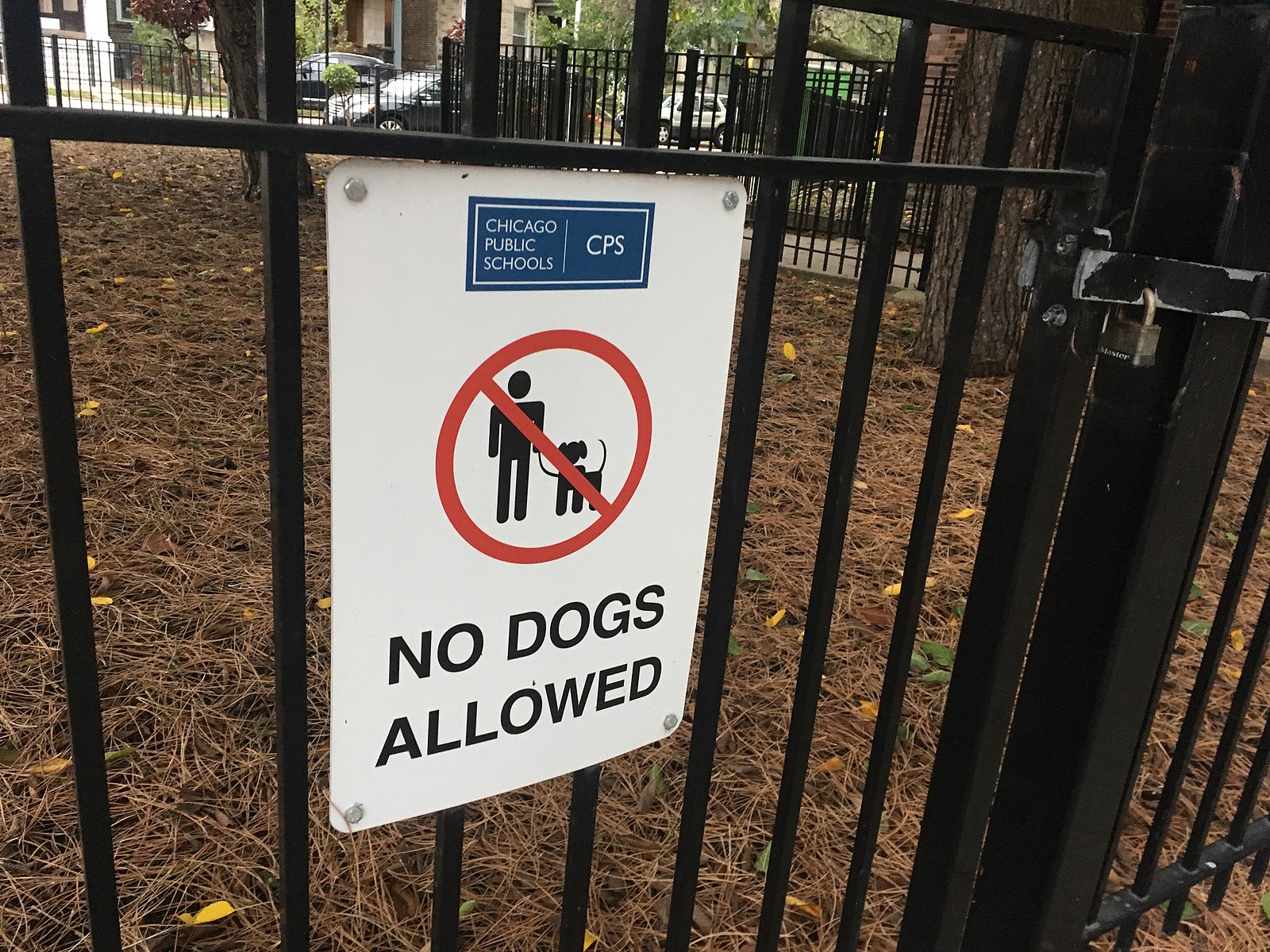Property tax payers need even minute respite. All community stakeholders need less dog waste.
A few neighbors elected me as a Community Representative to Disney Magnet Elementary Local School Council on Chicago’s north side. The experience is teaching me a lot.
I represent my neighbors. I also serve in the best interest of the school. I could not stand for my friends walking their dogs on our school’s recess area and park– the number of our students regularly upset or sickened, with the younger ones at least in tears, from stepping, slipping, or even accidentally sitting in dog waste during out door activities had become too great.
What would you tell your kindergartner? What would you say to your kindergartner’s principal? –Their LSC? I would ask myself that.
Not to mention:
It is illegal.
Non service based dogs are not allowed on Chicago Public School property.
We, the Disney Local School Council, did not invent that ordinance nor its fine.
We only asked that its signage be more clearly posted.
It is the same rule at all of Chicago’s public schools.
It was for the schools’ good. It was for the public’s good.
This invites another great opportunity, for the public good.
All streets we walk up and down in our city could be made better by more collective efforts at dog waste removal.
The signs are everywhere.
Please, Curb. Please, Pick up. Please, Respect.
Fines. Fees. Posters about rats.
Our municipalities have a lot of economics to sort out in the near and long term future.
The broader strokes could be lost by glossing over their own details.
Some larger residential properties and some collections of buildings have demonstrated success in maintaining micro-scale dog parks in their own hyper local areas.
It is the exact opposite of the “Keep your dogs off the grass,” sign.
Instead, it says, in effect, “We appreciate it when your dog uses this area specifically over here and saves all the other areas over there.”
With some of neighbors more comfortable congregating their walks around specific spots anyway, neighborhood blocks make commitments to utilize a specific plot of land and conjoin the experience with a shared effort toward cleanliness; they work together to be sure there are always hand bags available and everything is picked up.
They use their own resources to plant specific grasses and lay useable stone formations.
They lay planters with ledges to make it easier if someone needs to kneel or sit for a moment.
They make that small spot their dog spot.
And they always have bags.
More than fine dog waste this incentivizes cleanliness.
This method should itself be incentivized.
The torrent that will be the economic questions of net values should not loose sight of this.
Some local problems have local solutions.
A potentially cataclysmic revaluation of property values is looming.
Just as a home owner performs renovations and maintenance to retain value, such neighborhood upkeep solutions should be endorsed.
In this time of personal wealth contraction, our municipalities need to be clever with their capitalization of their greatest assets– their communities.
Large complexes. Collections of buildings. Associations.
Our municipalities need to support hyper local development, such as this, for the public good.
Maybe provide the cleaning supplies.
Maybe provide a rebate or refund to those who do supply the cleaning supplies.
…Or an easement for dollars spent on maintenance.
Neighborhoods often have great dog parks.
Not everyone lives close to these great dog parks, but still could use a dedicated space in their area.
Maintained streets benefit everyone. Efforts like this may help land values and keep side walks and parkways clean.
And dogs are great, so there.
